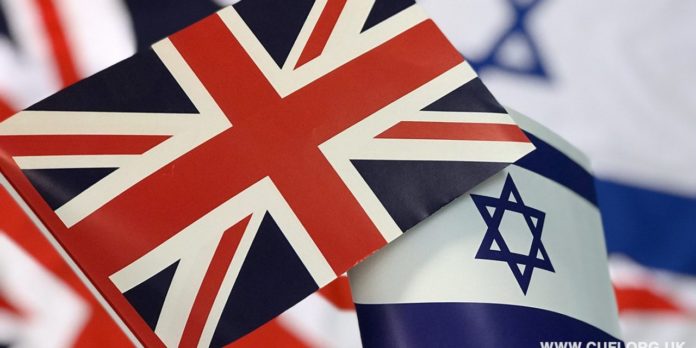The British Armed Forces and the Israel Defence Forces (IDF) have signed a joint agreement to strengthen their relationship.
Last Thursday, the UK’s Chief of Defence Staff, Gen. Sir Nicholas Carter, and the IDF Chief of Staff, Lt Gen Aviv Kochavi, signed the agreement to formalise and enhance defence collaboration and support the growing Israel-UK partnership.
Most of the agreement is highly classified but it’s being reported that cooperation will include defence medical training, organisational design and concepts, and defence education.
UK Ambassador to Israel, Neil Wigan, tweeted: “Delighted to announce that UK and Israeli Chiefs of Defence Staff… signed a new agreement to further deepen our military co-operation.”
UK and Israel military cooperation has been growing over the last decade. Both countries wish to prevent Iran achieving a nuclear capability, curb its advanced ballistic missile programme and counter Iranian allies, particularly in Lebanon, Syria, Iraq, Yemen and The Gulf.
They also share concerns against so-called “Islamist terrorism,” with emphasis in recent years on ISIS.
There is also significant cooperation between the two countries in cyber security, described by a senior UK official last year as a “first-order partnership.”
Subscribe to our newsletter and stay updated on the latest news and updates from around the Muslim world!
And since 2010 the two countries have cooperated on the development of Unmanned Aerial Vehicles (UAVs), which have been deployed by British forces in Iraq and Afghanistan.
Outside of military affairs, the UK and Israel also have a burgeoning partnership.
British exports to Israel were worth $6.2bn in 2018, an increase of 132 per cent since 2012. This was largely driven by a 14,000 per cent increase in oil exports worth $3.8bn in 2018.
And Israeli exports to the UK were worth $4.34bn in 2018, an increase of 21 per cent since 2012. The increase was largely driven by a 52 per cent increase in pharmaceutical products worth $2.8bn in 2018.
The UK is Israel’s third largest export market, behind the U.S. and China.
Meanwhile, the UK provided the Palestinian Authority with aid worth £500 million between 2011-2017.
The increased cooperation with Israel comes despite constant criticisms of Israel by human rights groups.
According to Amnesty International:
- Israel imposes institutionalised discrimination against Palestinians living under its rule in Israel and the Occupied Palestinian Territories.
- In 2019 Israeli forces killed 38 Palestinians, including 11 children, during demonstrations in the Gaza Strip and West Bank; many were unlawfully killed while posing no imminent threat to life.
- Israeli air strikes and shelling in the Gaza Strip killed 28 Palestinian civilians who were not directly participating in hostilities, including 10 children.
- Israel maintained its illegal blockade on the Gaza Strip, subjecting its residents to collective punishment and deepening the humanitarian crisis there.
- It continued to restrict freedom of movement of Palestinians in the OPT through checkpoints and roadblocks.
- Israeli authorities unlawfully detained in Israel thousands of Palestinians from the OPT, holding hundreds in administrative detention without charge or trial. Torture and other ill-treatment of detainees, including children, were committed with impunity.
- Israel displaced over 900 Palestinians in the West Bank as a result of home demolitions.
- The authorities used a range of measures to target human rights defenders, journalists and others who criticized Israel’s continuing occupation of the West Bank, Gaza Strip and Syrian Golan Heights.
- The authorities denied asylum-seekers access to a fair or prompt refugee status determination process.
- Conscientious objectors to military service were imprisoned.





















